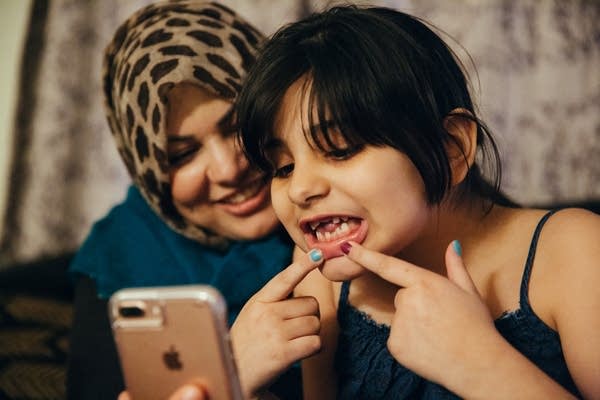'Baba, when are you coming?' For immigrant families in limbo, the waiting becomes indefinite

Seven-year-old Maryam shows her father her missing teeth, via video chat, from the Coon Rapids, Minn., apartment she shares with her mother and sister. Maryam's father is stuck in Iraq during a 90-day travel ban set by the U.S. government. They keep in touch by phone.
Evan Frost | MPR News
Go Deeper.
Create an account or log in to save stories.
Like this?
Thanks for liking this story! We have added it to a list of your favorite stories.


